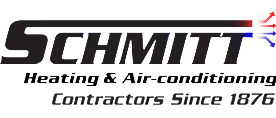Home is much more than just a shelter, it is also a place where we can feel secure and comfortable. We spend so much time in our homes that home comfort becomes more than just a luxury, but a necessity. Your indoor environment is an important part of creating a comfortable home environment for everyone in your family. Maintaining optimal temperatures and indoor air quality allows you to provide a home environment that is not only comfortable but also healthy.
Why Home Comfort is Essential
There are 3 basic factors that contribute to home comfort – temperature control, humidity, and air quality. Temperature regulation is not only important for comfort. It can also impact health. Living in conditions that are too cold or too warm can cause health issues for those with weakened immune systems, such as newborns, infants, and elderly individuals.
Humidity can also impact both comfort and health. When your home environment is too dry, it may make it difficult to breathe and cause health issues such as dry skin. When humidity levels are too high, this increases moisture levels, which can also cause breathing difficulties. Large amounts of moisture can invite mold and mildew into the home, which causes a variety of health issues including serious respiratory problems.
Indoor air quality is also an important factor that impacts home comfort. Pollutants, allergens, and other contaminants from the outdoors enter your home as people leave and return. These pollutants can impact respiratory health, triggering asthma symptoms and asthma attacks. In extreme circumstances, this may even cause allergies or asthma in those who have not experienced it before.
Tips for Maintaining Home Comfort
There is no magic recipe for ideal home comfort. Comfort levels depend on personal preferences. However, there are some general elements that need to be monitored to keep your home environment safe and healthy. Here are some tips for helping maintain a comfortable home environment for you and your family:
- Make sure that your home temperatures are kept at a comfortable and healthy level. Using a programmable or smart thermostat can help you maintain temperatures throughout the year.
- Monitor humidity levels within your home. Research shows that the best humidity levels for health and safety are between 40-60%. If you find that humidity levels fall below or rise above this humidity level, consider implementing HVAC add-ons like dehumidifiers or humidifiers.
- Take measures to reduce pollutants and improve indoor air quality. One of the best ways to do this is by changing or replacing your air filters regularly so that they can continue to keep allergens and pollutants from dispersing in your home. It is also vital to keep your home clean, especially carpets, curtains, and furniture which can trap pollutants.
Maintaining a comfortable home environment is vital to keeping your family healthy and happy. If you need advice on how to maintain home comfort or improve indoor air quality, contact us today.



